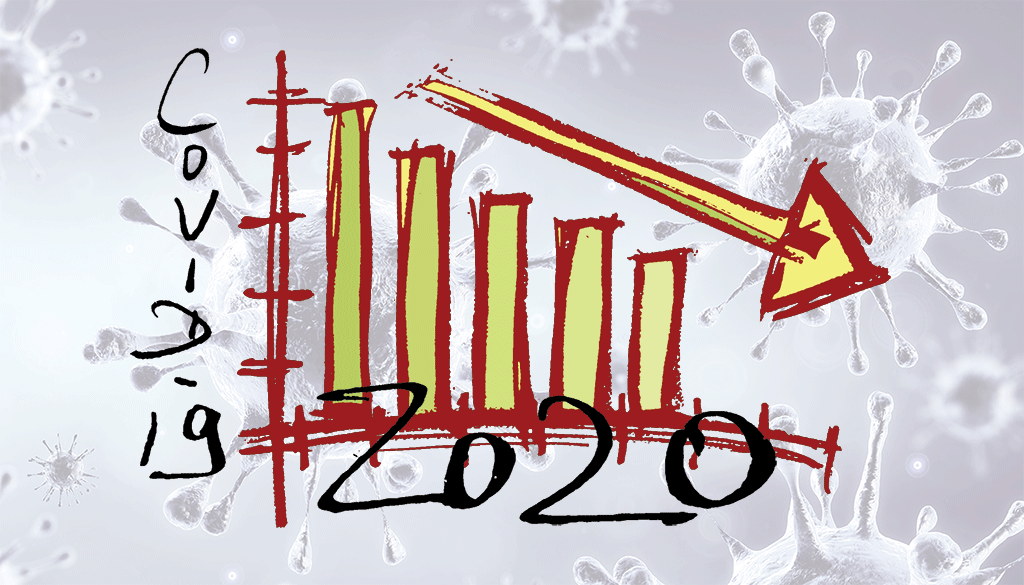
Office goers in Nepal should be a very happy lot. The government of the day gives them ‘Bida’ or holiday on pretext as flimsy as the visit of the Indian president. The opposition especially the extremist opposition declares ‘bandh’ (closure) on pretexts unknown to the common people. Both lead to the same ‘no work’ on the day.
The Government gifted its citizens additional leave on 2 November because the Indian President was arriving in Nepal on that day. Unlike those have to toil the entire day to get paid their daily wage, employees who are paid on a monthly basis, no doubt enjoyed this holiday. They enjoyed it even more as it came in continuation of the Tihar holidays. They could continue eating and betting as Tihar is incomplete without both.
One fraction of the Maoist Party organised a ‘bandh’ on 13 November. Vehicular movement was stopped. Educational institutions closed. Shops compelled to close shutters. However government offices were open, but little work transpired there. This ‘bandh’ also gave reason to stop work.
We Nepalis have always enjoyed our holidays and gambling. During the Rana regime, whenever something ‘good’ occurred in the family like coronation, the birth of a son, or even his marriage – he (‘she’ was never a ruler) would allow open gambling in the streets. When this happened, people could indulge in ‘Kauda’ (a game played with 16 pieces of sea shell) and bet openly and legally. Europeans who visited Nepal back then were baffled by this distinctly Nepali tradition. Although the tradition of declaring days when ‘gambling’ becomes legal has long been discontinued, the habit of placing bets during festivals seems to have taken root in our collective psyche. Playing ‘marriage’ with three or four decks of cards is a national pastime be it during an official holiday or a ‘bandh”, the unofficial holiday.
Declaring occasional national holidays is a feudal tradition continuing in Nepal. The king would declare his birthday a national holiday. Most monarchies celebrate the birthdays of their monarch as national day. We did the same. When the king’s wife became powerful, as was the case during King Birendra’s reign, the queen’s birthday was isted as a public holiday too. An heir gets born – another holiday. The death of a king meant at least five public holidays. When the king went on foreign jaunts or came back, another holiday. Even the arrival of high-ranking foreign dignitaries meant a day off. These holidays served another purpose too: people had to line up the street to greet their ruler or bid him farewell, a legitimized and reinforced version of ‘chakari’ from the feudal past. With his ego massaged, the ruler could also show foreigners how much power and love he had among his subjects.
Organising a ‘bandh’ has similarly become a national attribute of the opposition of all hues and colours. A ‘bandh’ organized by a political force however insignificant that may be in the national electoral politics becomes a ‘grand success’ with pelting of stones by few of its cadres and torching of a vehicle or two or by hired goons somewhere in the country. The ‘bandh’ is a least cost method of proving a political leader’s existence in the national scene. In a way it also helps to massage self ego, this time not of the ruler but of the opposition to the ruler.
Nepal is not the only country where royal incidents automatically warrant a public holiday. When the Thai king died recently, Thailand announced a whole year of public mourning. Although offices in Thailand will not be closed for a year, some official work – like the coronation of the next king – will not take place until next year. The rise of Sinhala nationalism (with Buddhist monks as the standard bearers of such a movement) led to full moon days being declared holidays in Sri Lanka. In nations where there are still hereditary heads of state, the birthday of the hereditary head of state is declared a holiday. For example, the Queen of England’s birthday is an official holiday in countries like Canada, New Zealand, Australia, etc. But even among these countries, there is no common day when her birthday is observed. Canada celebrates May 25 as her birthday, in England they mark it on the second Saturday of June, and in Australia different states have different days for the occasion. Most interestingly, nobody observes it on 21 April, Queen Elizabeth’s actual day of birth.
‘Bandhs’ and Strikes are the hall mark of left dominated multi party politics. General strikes were quite common in Europe in the 50s and 60s. They are still common in some parts of India (West Bengal or Kerala) and Bangladesh. The leaders and parties seem to resort to ‘bandhs’ when they do not have to be accountable for their action.
The advent of modern capitalist economy meant that production of any one commodity and services required the combined efforts or contribution of many operators, therefore unplanned holidays and abrupt stoppage of work rendered very heavy costs to the economy. As goods and services had to be delivered at a pre-determined time, disruption of work by declaring a holiday became too costly to be pursued. The need to avoid disruption of work can be judged from the US system. The election to the President, Federal Legislature - congress, state governors, and state legislature are held on a fixed day (First Tuesday after First Monday) in November. The reason of holding election in November is that by this time harvesting is already complete and sowing has not yet begun (USA was Primarily agrarian when the US constitution was being finalized).
The interest of the capitalist system – one may call this a modern economy – made granting impromptu holidays almost unimaginable. Along with ordinary people, democracy made employees powerful through electoral process. Holidays started to be seen as a way of enhancing productivity, efficiency and quality of life of the employees. Weekly holidays became the norm so that workers could ready themselves for the following week of work. Most developed and many developing countries have fixed five days of the week as workdays, setting aside two days over the weekend as holidays. Some are even thinking of adopting a four-day working week.
Occasions like Christmas or Independence Day may still be observed on certain dates, which seem to be holidays by default, but a lot of holidays are observed on certain day of a week. Instead of having mid-week holidays, off days are given at the beginning or end of the working week. For example, Americans observe the third Monday of January as Martin Luther King’s birthday, the third Monday of February as George Washington’s birthday, the first Monday of September as Labour Day, and so on.
The rise of capitalism not only swept away feudal traditions, but also gave rise to commonly shared and standardized calendar and weekly holidays among many countries. Nowadays almost all countries have adopted the Gregorian calendar, even though it was named after Pope Gregory, the thirteenth chief of the Roman Catholic Church. Some of the religious festivals may still be observed on the basis of prevalent traditional calendars. For example, some Christian communities still observe Christmas on January 7 on the basis of the old Julian calendar, Muslims observe their religious festivities on the basis of the Hijri calendar. The Buddhists and the Hindus also have their own lunar calendars for their religio cultural festivals. But from Japan to Turkey, and from Norway to New Zealand, the Gregorian calendar is in widespread use. The Government of Saudi Arabia, the most conservative Muslim country in the world, recently announced it would pay its employees according to the Gregorian calendar. Even for weekly holidays there seems to be a trend towards harmonization. Even Muslim majority states like Indonesia, Malaysia Pakistan, Turkey, Tunisia, etc., Saturdays and Sundays have been adopted as weekend holidays. This is done so that you have the same holidays as your trade and commerce partners.
When we got ‘democracy’ again in 2006, we termed it ‘Loktantra’ (rule of the people) instead of ‘Prajatantra’ (rule of the subjects), many of us had hoped for reforms in public holidays and end of the tradition of calling ‘bandhs’. Those who had some understanding of international commerce felt there were far too many disruptions of work
Most bizarrely our holidays fell on different dates in different years, making it impossible to explain to foreigners when and why our government offices, banks and private offices would be closed next year. It was thought holidays would now be aligned to the Gregorian calendar followed not only by Christian nations but by the whole world. It is not that efforts were not made. At a meeting of Nepal Business Forum in 2010 itself, a joint public-private dialogue group, the then Secretary of the Ministry of Finance assured those present that public holidays will be reduced from the next year. The forum even termed this as a remarkable achievement. The forum also discussed ways and means to stop the tradition of calling Bandhs. The way suggested was to make the callers of the Bandh to pay compensation for the loss caused by their action (The compensatory provisions of the law seem to have dissuaded the calls for general strike in the West. Alas, such a sensible notion was not acceptable to politicians, who with their vote banks in mind, would neither decrease the number of public holidays nor bring a compensation act which will legally oblige them to be financially accountable for their actions.
Almost three dozen days are listed as public holidays in Nepal. We observe five new years during a year. Last year the government, with the Sherpa community in mind, declared a holiday for Gyalbo Lhosar. It was later discovered that the Sherpas had celebrated Lhosar a month earlier, which coincided with Sonam Lhosar, the New Year for the Tamangs which is also a public holiday. Random holidaying reached its absurdity when the government closed all of its offices when the civil service union had an election. The absurdity of ‘Bandh’ is even starker. Most of the people on the street may know who called for a ‘bandh’, but do not know what is the ‘bandh’ for.
Besides these officially pre-declared holidays, the government also declares other occasional public holidays. We have a day off when a former prime minister dies or when we host the SAARC summit or election is held and so on. During the first Constituent Assembly elections, offices and banks were closed for five days. During the second CA elections, we had four days off. Nowhere in the world, can employees dream of five days paid leave on account of an election. Many states in the US do not close their offices even though their presidential and congressional election happens on the same day. In many European democracies election is simply held on Sunday, regular public holiday. In our country there is no concept of bank holiday separate from government holiday. When the government declares a public holiday, commercial banks also put down their shutters.
One may ask why we bother when one employer gives paid leave to its employees. But Government is not an ordinary employer. It is the largest employer and much of running of the economy is aligned with government units functioning. The regulatory works like registration, approval, and monitoring do not happen on that day. Many institutions align their work hours with the government. Besides, the private sector operators face tremendous pressure from their unions to stop operations on that day. As a result, all work – private or public – is affected.
The most bizarre explanation of the public holiday was given by our own Prime Minister. As per media reports he claimed that he himself was not in favour of declaring a public holiday on that date, but he (cabinet is accountable to him in Westminster style of government) did so and it was on the advice of Madam President (the first ‘she’ ruler of the country) that the public holiday was declared. This seems to be perfect in line with our age old Nepali tradition of shifting accountability to somebody above. In the Westminster style of government, the head of state has a ceremonial role and the prime minister is the chief executive. If the President is to decide which days are to be off days for government, what do we need the PM and his Cabinet for?
During the VVIP visit, roads were closed not for 5 -10 minutes to allow the unhindered passage of the VVIP carcade but for hours and hours forcing people to undergo a curfew like condition. In our Loktantra, there is almost no regard for the plight of the ordinary ‘lok’ (people). In the same vein, the ‘true’ proletarian party (every fraction of a communist party claims itself as representing the true interest of the proletariat) had little concern on how the daily wage earners will survive when they enforce a ‘bandh’.
One wonders how the economy survives affronted almost every week by such random holidays. The private sector organizations like FNCCI report of loss of more than two billion rupees a day when a bandh occurs. The loss due to holidays should be of similar magnitude. But the interesting part is their opposition of holidays and bandhs are rather muted. Probably, our economy and way of life seem to be rather primitive. We may have revolted against monarchy, but we have hardly raised demands for an environment where we could work and lead our life unhindered. Ours is a classic case of ‘I am all for democracy, provided I am at the helm’.
Any way we seem to pride that we are a different kind of nation. We have a flag with two triangles when the world has rectangular flag. We do not follow the time zone principle and we have 5 hour 45 minutes difference with GMT while rest of the world maintains difference with GMT in full hours (a few countries including our Southern neighbour may have a half an hour difference to avoid two time zones). We close our offices on Saturdays when most of the world closes on Sundays. We rejoice and mourn with holidays… it is rather astonishing that we did not have a holiday on the death of Fidel Castro of Cuba. We have so many new years, we celebrate so many birthdays in a year and celebrate all of them including the birthdays of Gods. We have leaders who claim the organization of visit of a ceremonial head of a foreign country as an indicator of achievement. We have proved that we can easily survive with a whole week or more of banks and government offices being closed. So the suggestion of this author is - ‘let this country be declared a country of holidays and bandh. We closed for a day when the ceremonial head of India came. If Chinese President were to arrive, let us close for at least three days as he is not merely a figurehead but exercises authority too. So, most likely, the threat to him would be higher. If the American president were to come let us declare that we will have at least seven days off. His (maybe her in near future) threat perception is perceived to be higher. If Al Bagdadi of ISIS, the most threatened human being (if he can be called so) on earth, were to arrive, we may have leave for ever. As we prize our uniqueness, such declaration would add another feather in our uniqueness. As for the economy who cares. We can survive with the economy on permanent ‘leave’. Ends justify the means.





